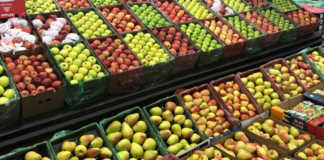
With outbreaks of highly pathogenic H7N6 bird flu ravaging flocks across the country, eggs are in short supply. Consumers started panic buying when news about possible egg shortages became public. As a result, retailers that have available stock are limiting purchases, and prices have doubled to around R200 for a tray of 60 eggs in most cases.
Dr Abongile Balarane, CEO of the South African Poultry Association’s (SAPA) egg division, told Farmer’s Weekly that although the peak of H7N6 infections seemed to have passed, the industry was not in a good state.
“Around 25% of the national layer stock has been culled, and another 5% are currently being investigated and might be culled too. This is the third and most severe bird flu outbreak we have had in close succession and the industry is in dire straits.”
Balarane said that the bird flu outbreak added to the challenges already facing poultry producers, like load-shedding and increased electricity and feed costs. “We haven’t estimated how many farmers will be exiting the industry as a result, but we suspect there will be many.”
This puts future egg supply in a precarious position. Minister of Agriculture, Land Reform and Rural Development Thoko Didiza said in a statement that the main challenge with regards to the impact of H7N6 was primarily on the egg production side.
The department has focused its efforts on improving the availability of eggs and putting measures in place to contain the spread of the disease. This includes increasing the efficiency of issuing import permits for egg products.
Balarane confirmed that the industry had been quick to respond to shortages by importing table eggs as well as liquid and powered eggs.
If the latter two could be diverted to industrial uses, it would free up more of the local table egg supply for consumers. Hatchery eggs were also being imported to replenish layer hen stock on farms affected by H7N6. Consumers can therefore expect that local production will return to normal within the next 18 months.
While there are no import tariffs on table eggs, Balarane said that prices would be determined by supply and demand, and eggs would not necessarily land in South Africa at a higher price.
He called on South Africans to celebrate World Egg Day regardless of the shortages. “Eggs have a lot to offer in a balanced diet, and are a low-cost source of protein. Eggs on the shelves at local retailers are safe for consumption, provided normal food-safety steps are followed when preparing meals.”
World Egg Day was established in Vienna, Austria, in 1996, when it was decided to celebrate the power of the egg on the second Friday of October each year.
WATCH | Interview with Izaak Breitenbach, GM South African Poultry Association









